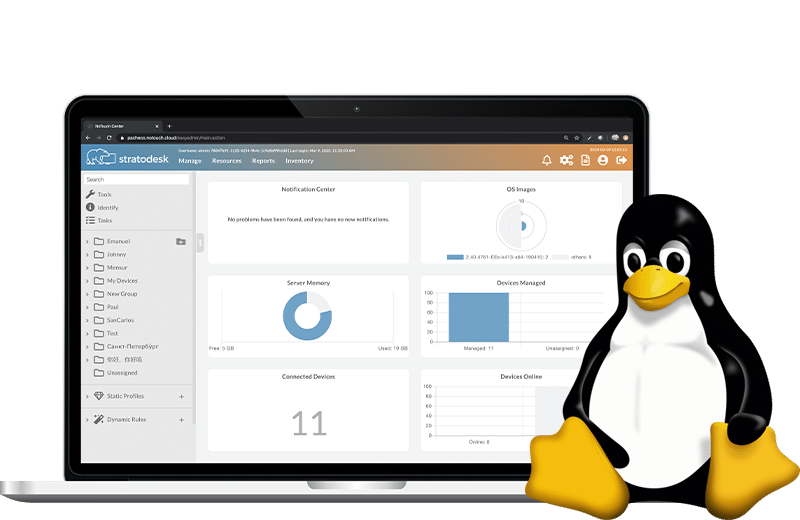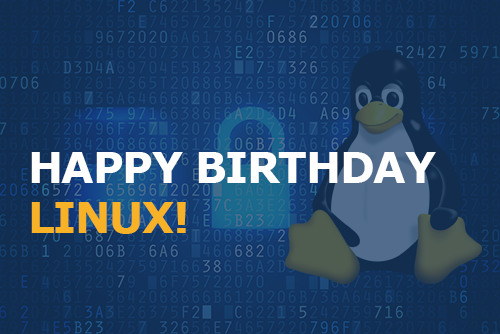Did you know that Linux, the open-source operating system that powers a significant portion of the digital world, has actually two potential birthdays: August 25th and September 17th? On August 25, 1991, a young Finn named Linus Torvalds typed out a small, now legendary announcement via email to a Minix newsgroup.
… I’m doing a (free) operating system (just a hobby, won’t be big and professional like gnu) for 386(486) AT clones. …
Linus ([email protected])
Most open-source folks (including the Linux foundation) consider the day of Linus’ announcement as the official birthday of Linux, but September 17th does hold historical significance as well as the day the first source code (that would become Linux) got released. So Linux ended up with two birthdays, just like the British Monarch does. Linus himself says both dates are valid and who can argue with two birthday cakes for Tux, the Linux mascot?
Linux today, more than 30 years after its development, is the heartbeat of modern computing. Many devices we use today run on Linux or rely on Linux in some form. Many people don’t know that Linux powers for example high-speed trains as well as supercomputers, smartphones, robots on space missions, their hyper-secure routers and cable-TV boxes at home, and of course a majority of (web) servers. For many companies, Linux also became a top choice when it comes to secure operating systems desktop hardware, or IoT/Edge devices.
Linux in Thin Client Computing and Edge Devices
Linux has earned its reputation as a versatile and reliable operating system, making it an excellent choice for various computing scenarios, including thin client computing and edge devices.
Thin Client Computing
- Resource Efficiency: Linux’s lightweight nature and ability to run efficiently on minimal hardware make it ideal for thin client computing. Thin clients rely on server-side processing, reducing the need for powerful local hardware.
- Security: Linux’s robust security features, including regular updates and a strong permissions system, enhance the security of thin clients by minimizing vulnerabilities.
- Centralized Management: Thin clients often require centralized management, and Linux’s open-source nature allows for flexible customization and integration into existing infrastructure.
Edge Devices
- Stability: Edge devices, such as IoT devices and industrial equipment, demand reliability and stability. Linux’s rock-solid performance and long-term support options make it a preferred choice.
- Open Source Ecosystem: The open-source nature of Linux fosters an ecosystem of community-driven development and support, making it easier to adapt and customize for specific edge computing applications.
- Scalability: Edge computing environments can vary greatly in scale. Linux’s scalability ensures it can accommodate both small-scale deployments and large, complex edge networks.
Linux’s Versatility and Popular Use Cases
Beyond thin client computing and edge devices, Linux is popular in various other use cases:
- Web Servers: Many of the world’s most popular websites and web applications are hosted on Linux-based servers due to their stability, scalability, and security features.
- Scientific Research: Linux’s reliability and performance have made it a preferred choice for scientific computing, used in fields like physics, chemistry, and genomics.
- Cloud Computing: Leading cloud providers like Amazon Web Services (AWS), Google Cloud Platform (GCP), and Microsoft Azure rely on Linux as the foundation for their cloud services.
- Embedded Systems: Linux powers a wide range of embedded systems, from smart TVs to home automation devices, thanks to its adaptability and support for various hardware architectures.
- Software Development: Developers appreciate Linux for its powerful development tools, package managers, and compatibility with programming languages.

Since the founding of Stratodesk our thin operating system “NoTouch” has always been based on Linux. NoTouch OS is the company’s flagship product, our primary focus, and the reason for our global success. NoTouch OS is a hardware-agnostic, lightweight, secure, and flexible operating system that helps organizations of any kind and size to minimize their hardware expenses and operational costs. Combined with a client management platform (that is cloud hosted on a Linux-based server as well) Stratodesk provides an ideal solution for more than 6000 customers, connecting more than 2 million end users to their VDI or cloud workspace from any kind of desktop endpoint. The number of Stratodesk customers is growing daily.
Conclusion
Whether you choose to celebrate it on August 25th, September 17th, or both, Linux’s impact on computing is undeniable. Its versatility, security, and reliability have made it the go-to choice for thin computing devices, edge devices, and many other use cases. As we celebrate Linux’s inception here at Stratodesk, we embrace the spirit of open source and innovation that continues to drive its development and success in the digital world. Happy Birthday, Linux! We eagerly anticipate our continued progress alongside you!
Not familiar with Linux? Discover the secrets to becoming a NoTouch OS Pro in our insightful blog post titled “You Don’t Need to Know ‘Linux’ to be a NoTouch OS Pro.“

